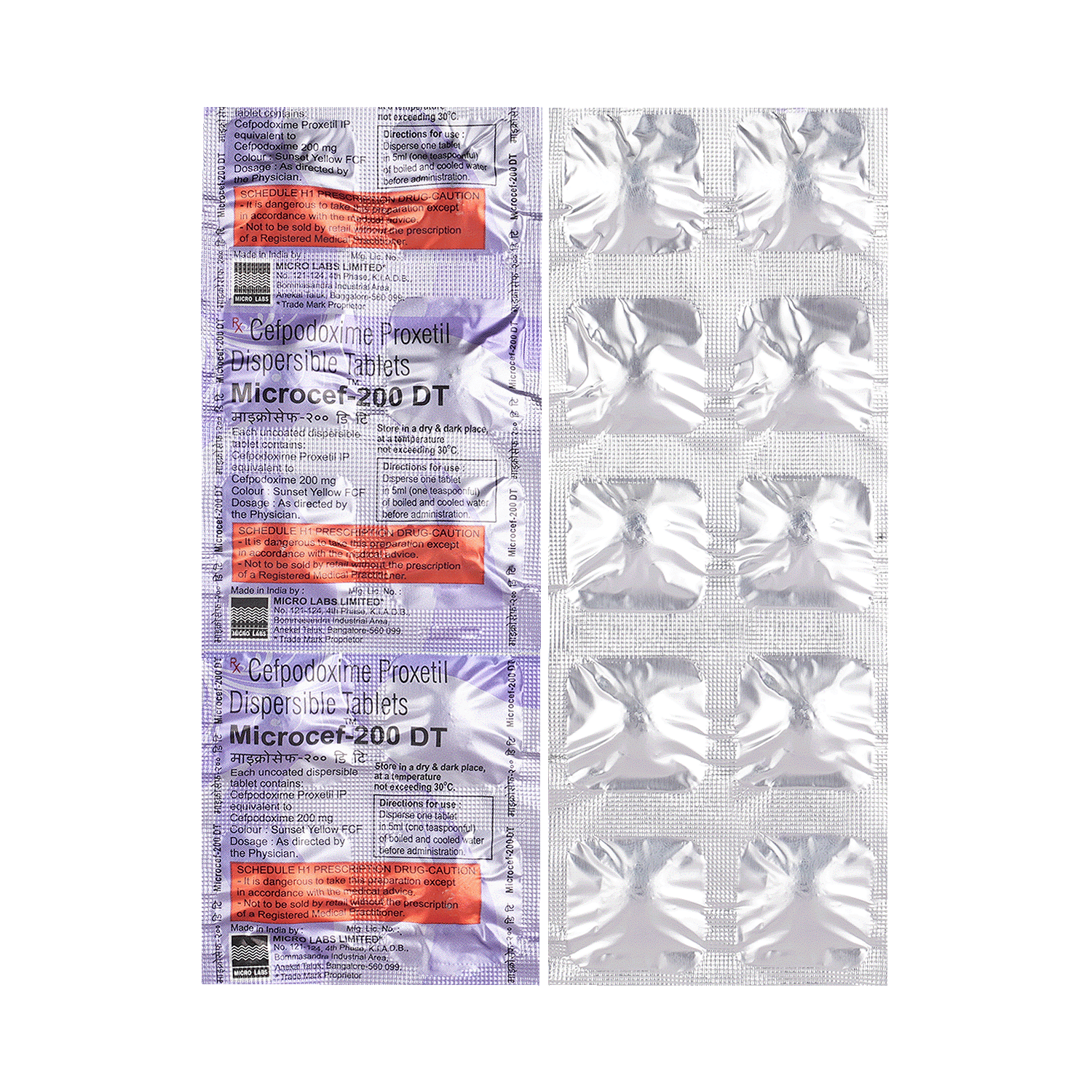
Proxyden 200 DT Tablet
Manufacturer
Vishwak Pharmaceuticals
Salt Composition
Cefpodoxime Proxetil (200mg)
Key Information
Short Description
Proxyden 200 DT Tablet is an antibiotic medicine used to treat bacterial infections in your body.
Dosage Form
Tablet DT
Introduction
Proxyden 200 DT Tablet is an antibiotic medicine used to treat bacterial infections in your body. It is effective in infections of the lungs (eg. pneumonia), urinary tract, ear, nasal sinus, throat, and skin. It kills bacteria, which helps to improve your symptoms and cure the infection.
Directions for Use
Do not skip any doses and finish the full course of treatment even if you feel better. Stopping it early may make the infection harder to treat.
Safety Information
Side Effects
No common side effects listed.
Interacting Medicines
Magaldrate Sodium Bicarbonate
How it works
Proxyden 200 DT Tablet is an antibiotic. It kills the bacteria by preventing them from forming the bacterial protective covering (cell wall) which is needed for them to survive.
Quick Tips
Your doctor has prescribed Proxyden 200 DT Tablet to cure your infection and improve your symptoms. Do not skip any doses and finish the full course of treatment even if you feel better. Stopping it early may make the infection harder to treat. Discontinue Proxyden 200 DT Tablet and inform your doctor immediately if you get a rash, itchy skin, swelling of face and mouth, or have difficulty in breathing. Diarrhea may occur as a side effect but should stop when your course is complete. Inform your doctor if it does not stop or if you find blood in your stools.
Related Medicines

Microcef 200mg Tablet DT

Odoxicef 200 Tablet DT

Cefdee 200mg Tablet DT

Sifdon 200mg Tablet DT

Imipod 200 DT Tablet

Poximo 200mg Tablet DT

Solodoxim 200 Tablet DT

Proxef 200 Tablet DT

Spnpod 200 Tablet DT

Pacidox 200 Tablet DT
Frequently asked questions
Is Proxyden 200 DT Tablet safe to use?
Proxyden 200 DT Tablet is generally considered safe when used at the prescribed dose and duration as directed by your healthcare provider. Following their advice is essential for ensuring its safety and efficacy.
Can Proxyden 200 DT Tablet cause diarrhea?
Yes, Proxyden 200 DT Tablet can cause diarrhea as a side effect due to its ability to alter the balance of bacteria in your gut. This disruption may lead to digestive discomfort including diarrhea. If you experience persistent diarrhea, consult your doctor.
Is Proxyden 200 DT Tablet an antibiotic?
Yes, Proxyden 200 DT Tablet is a cephalosporin antibiotic used for treating bacterial infections. It belongs to a class of drugs that inhibit the synthesis of bacterial cell walls.
Can Proxyden 200 DT Tablet cause constipation?
Yes, some individuals taking Proxyden 200 DT Tablet may experience constipation as a side effect. You can manage this by incorporating fiber-rich foods such as fresh fruits, vegetables, whole grains and avoiding oily or spicy foods, which tend to worsen the condition. If your symptoms persist, consult your doctor.
Can I stop taking Proxyden 200 DT Tablet when my symptoms are relieved or when I feel better?
No, you must not discontinue taking Proxyden 200 DT Tablet before completing the full course of treatment. Stopping early may prevent the bacteria from being completely eradicated, potentially leading to re-infection.
How long does Proxyden 200 DT Tablet take to work?
While Proxyden 200 DT Tablet generally starts working shortly after administration, complete symptom relief may take a few days. This timeframe allows the medication time to kill harmful bacteria and reduce your symptoms.
What if I do not get better after using Proxyden 200 DT Tablet?
If you experience no improvement in symptoms despite completing the full course of treatment, notify your healthcare provider immediately. They will assess your condition and provide appropriate guidance.
Can Proxyden 200 DT Tablet treat UTI?
Yes, Proxyden 200 DT Tablet may be prescribed for treating urinary tract infections (UTIs). It shows effectiveness in managing symptoms such as foul-smelling urine, frequent urination, vaginal irritation, discharge, and abdominal pain. However, it is important to consult a healthcare provider to determine suitability and ensure appropriate treatment.


